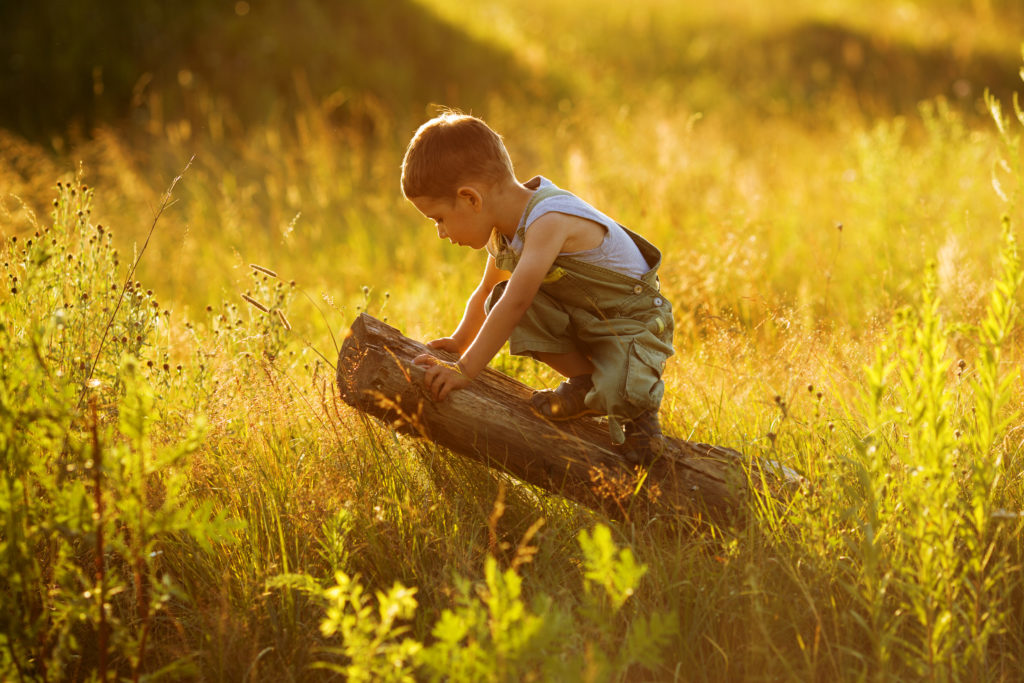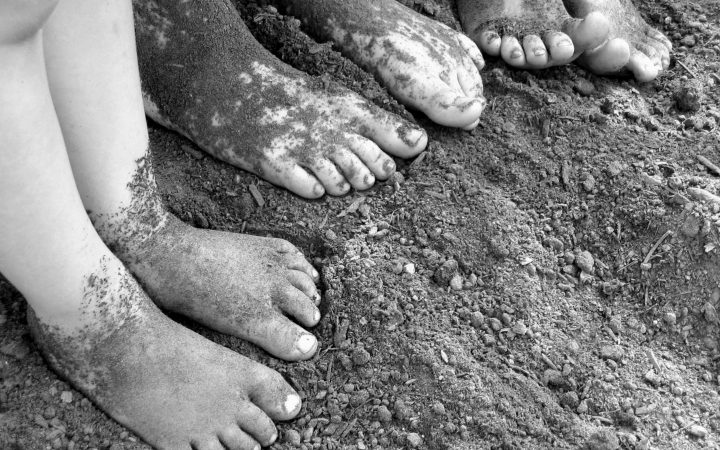Natural Simplicity

by Kiara Pirola
When do people most commonly feel God’s presence? It is rarely at a desk or in front of a screen. Most often, we have profound spiritual experiences when immersed in the natural world.
It is through God’s creation that we connect with the transcendent and we regain the capacity to be humble and filled with awe. It is the elegance and beauty of the natural world that shocks us out of materialism into a reverence for the goodness of creation.
But this sense of humility and awe can so easily be crowded out with busyness, and the quest for material things. Humility and awe require physical and mental space to be experienced.
Richard Louv’s book, Last Child in the Woods, articulates this problem as “nature-deficit disorder” and argues that our relationship with the natural world has fundamentally changed over the last thirty years. We deprive ourselves and our children of a vast resource of spiritual, mental and physical growth with our increasingly urbanised and technology-driven lifestylehs. His book has inspired a movement of parents, community leaders, religious leaders and policy makers to actively reconnect children and adults with the natural world.
Read the full Extract & Get the book here
The Last Child in the Woods
…Within the space of a few decades, the way children understand and experience nature has changed radically. The polarity of the relationship has reversed. Today, kids are aware of the global threats to the environment—but their physical contact, their intimacy with nature, is fading. That’s exactly the opposite of how it was when I was a child. A kid today can likely tell you about the Amazon rain forest—but not about the last time he or she explored the woods in solitude, or lay in a field listening to the wind and watching the clouds move.
…The shift in our relationship to the natural world is startling, even in settings that one would assume are devoted to nature. Not that long ago, summer camp was a place where you camped, hiked in the woods, learned about plants and animals, or told firelight stories about ghosts or mountain lions. As likely as not today, “summer camp” is a weight-loss camp, or a computer camp. For a new generation, nature is more abstraction than reality. Increasingly, nature is something to watch, to consume, to wear—to ignore. A recent television ad depicts a four-wheel-drive SUV racing along a breathtakingly beautiful mountain stream—while in the backseat two children watch a movie on a flip-down video screen, oblivious to the landscape and water beyond the windows.
…Our society is teaching young people to avoid direct experience in nature. That lesson is delivered in schools, families, even organizations devoted to the outdoors, and codified into the legal and regulatory structures of many of our communities. Our institutions, urban/suburban design, and cultural attitudes unconsciously associate nature with doom—while disassociating the outdoors from joy and solitude. Well meaning public-school systems, media, and parents are effectively scaring children
straight out of the woods and fields.
…Yet, at the very moment that the bond is breaking between the young and the natural world, a growing body of research links our mental, physical, and spiritual health directly to our association with nature—in positive ways. Several of these studies suggest that thoughtful exposure of youngsters to nature can even be a powerful form of therapy for attention-deficit disorders and other maladies.
As one scientist puts it, we can now assume that just as children need good nutrition and adequate sleep, they may very well need contact with nature…
Natural Connections
- Cloud Watching

Lie in the grass and watch the clouds. Spot different shapes and make up stories about them. Grab a book on clouds and try to identify the different types. - Explore & Observe
Even the youngest children can participate in an exploration expedition to the park! Arm yourselves with a note pad and pencil and wander around to find something that interests you. Share what you found and why you thought it was interesting or beautiful. - Stargazing
If you live in a city, all it takes is a short drive beyond the city limits to find some clear sky to watch the stars. Take a book on astronomy, search for constellations in the sky, or make up your own!
